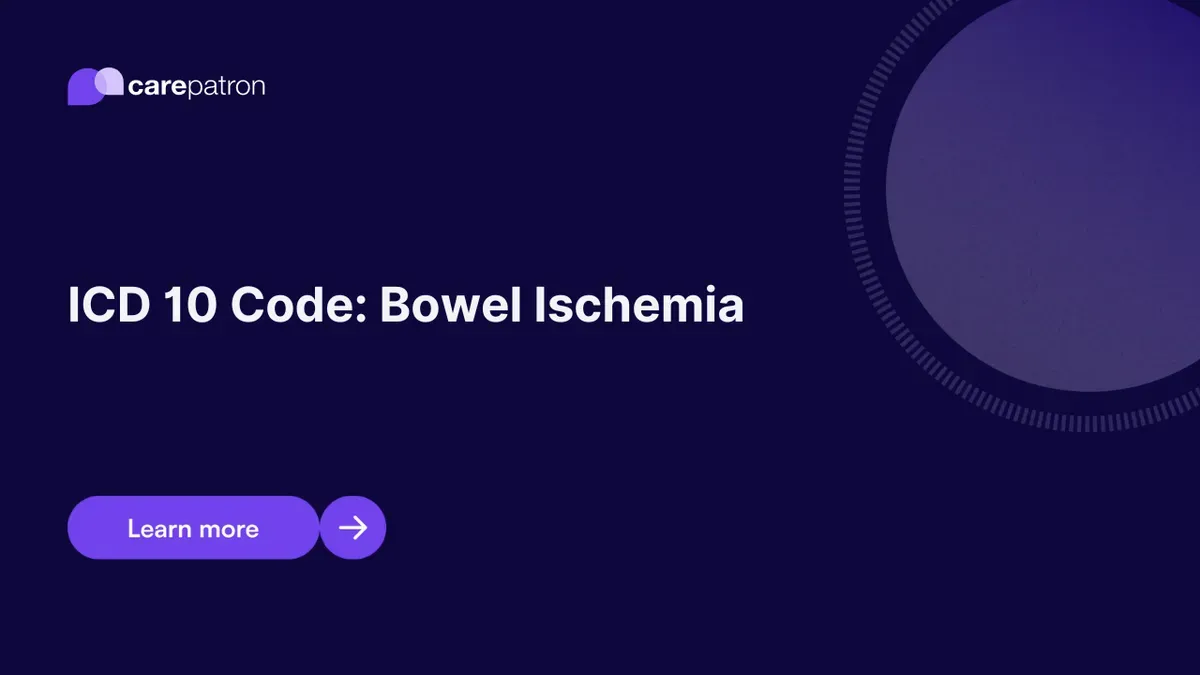
Bowel Ischemia ICD-10-CM Codes
Explore ICD-10 Codes Used for Bowel Ischemia diagnosis. Gain a deeper understanding of how healthcare professionals categorize and communicate cases.
Use Code
Commonly asked questions
ICD codes for Bowel Ischemia are used when healthcare providers need to document and communicate a patient's diagnosis of bowel ischemia. These codes are typically applied when a patient presents with symptoms and clinical findings that indicate reduced or blocked blood supply to the intestine, such as abdominal pain, diarrhea, or blood in the stool, and when medical evaluation confirms the condition.
Common treatments for Bowel Ischemia Diagnosis Codes depend on the severity and type of ischemia. Acute cases often require surgical interventions to restore blood flow to the affected area. In contrast, chronic cases may involve medications like blood thinners or vasodilators or surgical procedures to widen narrowed arteries. Treatment aims to alleviate symptoms, prevent complications, and improve blood flow to the intestine.
A diagnosis code for Bowel Ischemia is a standardized way to categorize and communicate the specific medical condition a patient is experiencing. Healthcare professionals use these codes for accurate record-keeping, billing, and tracking patient outcomes. Essentially, they provide a means to document and share information about the presence and nature of bowel ischemia in a standardized format across the healthcare system.
EHR and practice management software
Get started for free
*No credit card required
Free
$0/usd
Unlimited clients
Telehealth
1GB of storage
Client portal text
Automated billing and online payments
